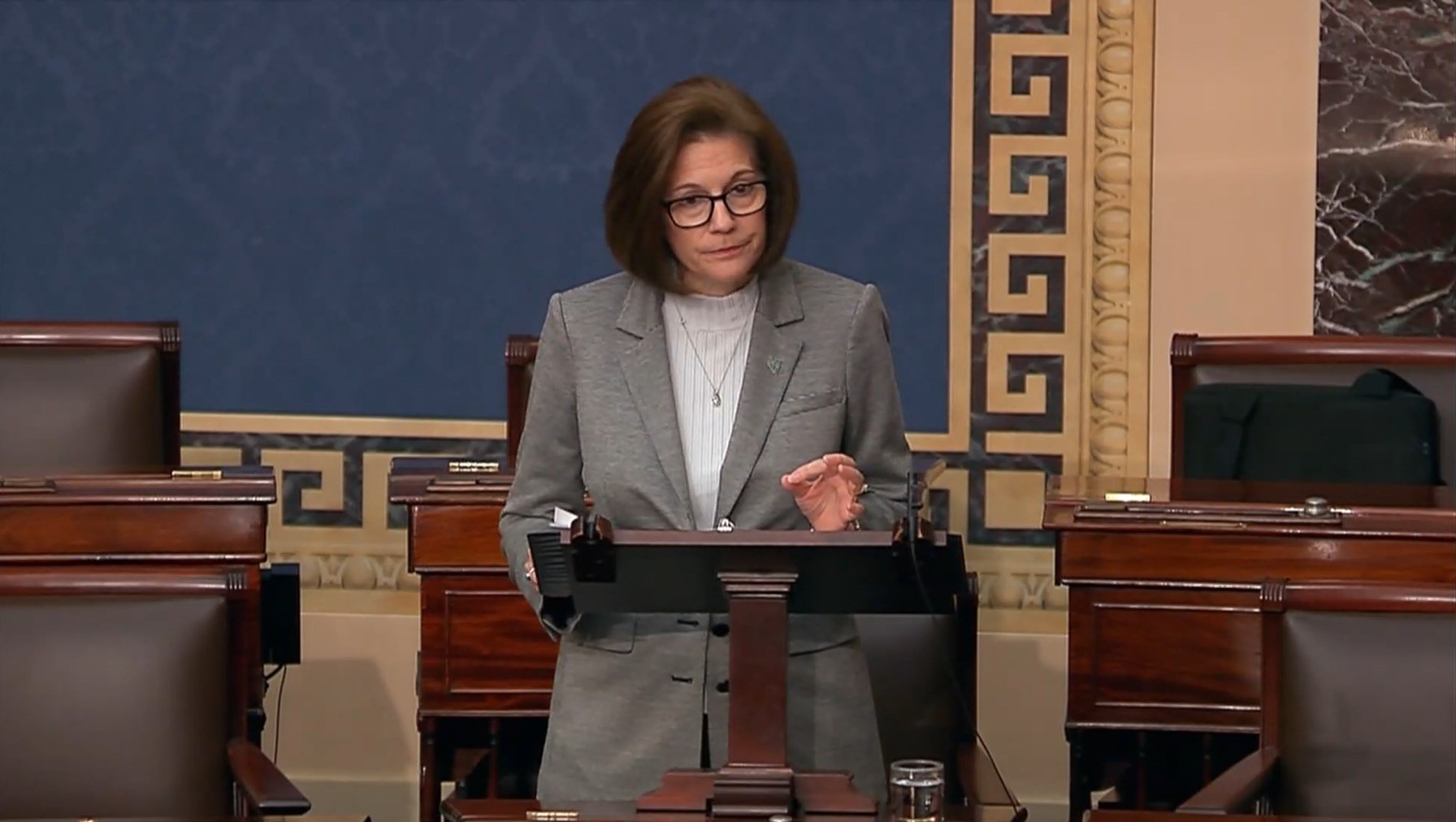“If we implement these tariffs, three-quarters of our solar deployment would stop. That would cede our leadership to the Chinese government, it would hurt our domestic manufacturing, and our working families would pay the price. We can’t let that happen.”
Washington, D.C. – On the Senate floor, U.S. Senator Catherine Cortez Masto (D-Nev.) condemned a resolution to reinstate solar tariffs that would kill clean energy jobs in Nevada and across the country.
Cortez Masto has led efforts to support the solar industry and the clean energy jobs it creates. She secured vital extensions of the investment tax credit and the residential renewable energy tax credit in 2020 to boost the adoption of solar energy and then expanded these tax credits in the Inflation Reduction Act. She’s led legislation to expand solar manufacturing in the U.S. and successfully pushed the Biden administration to suspend these solar tariffs last summer.
Below are her remarks as prepared for delivery:
Madam President, House Joint Resolution 39 to end the pause on solar tariffs is a misguided effort that will not only cripple our nation’s solar industry, but kill thousands of American jobs.
Our country is in a position to lead the rest of the world in clean energy production, including solar development. States like Nevada are building up our solar capabilities and creating thousands of new jobs that support working families.
Talk to the unions in my state and you’ll hear how important solar is for Nevadans. I spent some time recently with IBEW at Gemini Solar Project, one of the new solar arrays in Southern Nevada. I heard directly from them about how these are good-paying jobs for our workers – which is why so many unions, including Carpenters, Laborers, and Operating Engineers, oppose this resolution.
This effort to reinstate solar tariffs would devastate our operations, hurt working families, and make it even more difficult to become energy independent.
Just a few weeks ago, the Energy and Natural Resources Committee held a hearing with Energy Secretary Jennifer Granholm. She told me she gets it, we need a transition period to be able to build up our solar supply in the United States. It’s happening – thanks to the Inflation Reduction Act – but we’re just getting started.
Right now, the United States only has capacity to manufacture a small fraction of our domestic solar demand. Of course, we need to keep building our domestic manufacturing of solar. But we shouldn’t punish our workers by pretending that infrastructure already exists – because it doesn’t. That means we need to expand our supply of solar panels and cells.
Just having this vote has had a chilling effect on the solar energy industry. When the threat of these tariffs was looming – just the threat of them! – 75% of domestic solar projects experienced cancelations or delays, including in Nevada.
That’s a sign of what’s to come if this misguided effort is successful.
Nevada has the #1 solar economy in the country, which has created nearly 9,000 good-paying jobs – many of them union jobs. But if we lift the pause on our solar tariffs, those jobs will be in danger. I won’t stand for it.
And it’s not just in Nevada. It’s not just blue states or red states. These tariffs would risk the jobs of the 255,000 Americans who work in solar throughout the country. But some of my colleagues on the other side of the aisle still want to go ahead with this resolution.
Texas, for example, has over 10,000 jobs that would be endangered by these tariffs. North Carolina could see its nearly 7,000 solar jobs be jeopardized. And there are close to 12,000 Floridians working in the solar industry whose jobs would be at risk.
There is no justifiable reason to move forward with this resolution that would kill jobs in our own states. I agree that we need to stay competitive with the Chinese government, but if we implement these tariffs, three-quarters of our solar deployment would stop. That would cede our leadership to the Chinese government, it would hurt our domestic manufacturing, and our working families would pay the price. We can’t let that happen.
We need to be supporting American leadership in the solar industry, protecting our working families, and creating more solar jobs.
That’s why I urge my colleagues to vote NO on this irresponsible and harmful resolution.
###
